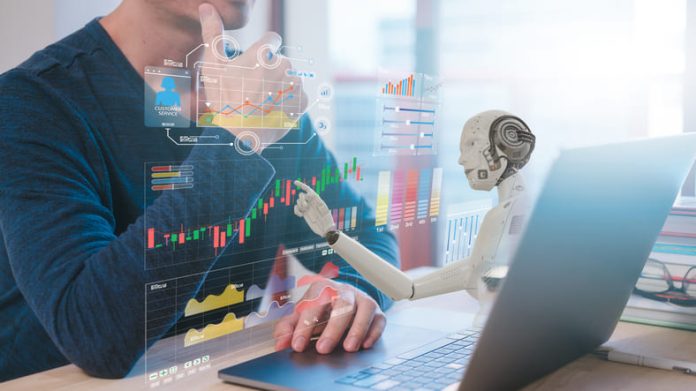There’s a lot riding on the choices you make, and strategic decisions can make or break your company’s success. Data is a crucial element in the process, and data-driven decision-making has long been the gold standard. The right information can alert you to emerging risks and potential opportunities, making it easier to chart the right course for your company.
According to this theory, the more data you have, the easier it should be to make decisions. In recent years, however, automated data collection and data processing solutions have dramatically boosted up the amount of data that business leaders can draw on, so you might expect to hear that decision-making has become easier.
Unfortunately, the opposite is true. According to one recent study, decision-making is quickly becoming a source of anguish for business stakeholders, as it turns out that too much data brings its own challenges. Close to three-quarters of respondents say that the sheer volume of data and their lack of trust in it paralyzes them from making decisions, while 89% believe that the jump in data sources limits their business success.
The stress of making decisions is causing anxiety among 85% of business leaders, and around one-third say that this leads to missed opportunities and unnecessary spending.
Perhaps that’s why so many business leaders are eager to embrace AI. AI-powered analytics already organize and manage data to support natural language queries for human decision-making, but many executives want to take it a step further. Handing over decision-making to an AI-powered robot sounds like a good idea to 70% of them.
Maybe it’s time for humans to take the back seat and leave it to AI not just to collect and process data, but to make strategic decisions?
AI Is a Better Decision Maker
In many ways, AI is better at making decisions. People are easily misled by their emotions, cherry-picking the data that supports their preferences and falling in line with majority opinions. Meanwhile, AI analytics engines can’t follow their gut reactions, aren’t affected by groupthink, and don’t allow overconfidence to cloud its judgment.
Although there have been cases of AI algorithms getting misled by data, such as Amazon’s sexist recruiting bot, experts argue that this kind of bias is less likely among AI engines than among people. “It’s a lot easier to understand and then fix the algorithm or AI than the human,” says Kosuke Imai, a professor of government and statistics at Harvard University. “It’s a lot harder to change the human or understand why humans make their decisions…. The advantage of AI or an algorithm is that it can be made transparent.”
As long as you use an open-source AI that isn’t a black box, Imai insists, AI can be more reliable and more trustworthy than human decision-making. Today’s newer models are building “explainability” into their outputs. AI decision processes are also significantly faster, which can be important in business settings where speed matters to avoid risks or seize opportunities.
AI Can Handicap Decision Making
On the other hand, some thought leaders are convinced that far from improving decision-making, AI can actively harm the process. Beyond the risk of bias, AI models are prone to their own hallucinations and mistakes, which could seriously mislead decision-makers.
Alexander D’Amico, a senior partner at McKinsey, warns that AI can also create more noise and distractions rather than helping filter them out. “The proliferation of data and insights elevates the importance of separating signal from noise. This has long been a challenge, but gen AI compounds it,” he explains. “We believe that as the technology matures, it will be able to effectively pull out the signals that matter, but it is not there yet.”
Business leaders who rely on AI insights to guide their decisions might not notice if they’re directed to focus on the wrong datasets, for example. AI models can deliver erroneous outcomes with supreme confidence, apparently backed by data, and may not accurately represent doubt or uncertainty in an issue.
Decision Making Needs AI in the Picture
One of the main complaints heard from participants in the decision-making survey was that they’re overwhelmed with data that doesn’t help them make a decision. Almost three-quarters believe that only IT professionals and data scientists can access data that helps them make decisions, and 77% say that they don’t receive relevant dashboards and charts.
This is where AI really shows its value. “Intelligent analytics and precise predictions will enhance human decision-making, driving better outcomes and operational efficiency across the board,” says José Miguel Diez Valle, an investment analyst. “No longer just a back-office assistant, AI is playing a crucial role in driving strategic choices in industries as diverse as finance and healthcare”
What business leaders need isn’t to offload their decisions to an AI engine, but for AI to help them find the data that will support them through the process. AI can interpret data into useful insights, and push them to decision-makers right when they are most needed. Leaders can also use AI to model and compare the results of different scenarios, to support smarter decision-making.
AI Unlocks Power, but Humans Need to Retain Control
One more factor in favor of human decision-making is AI’s lack of empathy and intuition. Granted, AI might make decisions that are more efficient, but it can’t allow for human nuances. For example, it might be most efficient to fire two-thirds of your workforce, but it might not be ethical, and it might add friction once you’re ready to scale up the business in a few months.
Omri Kohl, CEO Pyramid Analytics, a leading decision intelligence platform that has introduced powerful AI chatbot interfaces, points out that “AI is incredible at processing data, spotting patterns, and making predictions based on these findings. But it doesn’t have intuition, nor does it understand the nuances of your market or the complexities of your company’s strategy. That will always be left to the humans.”
AI doesn’t have the creativity to come up with new perspectives or consider the unexpected or unlikely. That’s why Kohl’s bottom line is in favor of human decision-making, augmented by AI. “Every time we talk about AI, everyone starts asking the big question: Will AI replace humans? My answer is of course not, at least not when it comes to making critical decisions…. The real magic is when the strengths of AI combine with our all too human creativity, experience, and judgment.”
Effective Decisions Involves Humans and AI
In the end, successful strategic decision-making requires the right balance between human and AI input. Human leaders need to take the final decision, ensuring that empathy, ethics, and creativity are involved. AI is vital to support them through the process, delivering timely and trusted insights that guide decision-makers towards the best conclusions and relieving them from guilt and uncertainty.



































